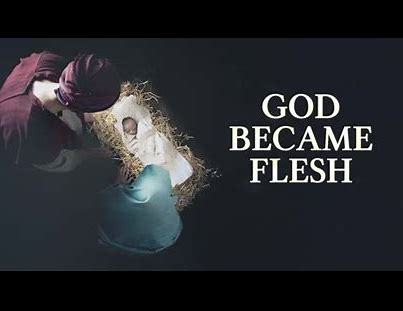Gospel Notes by Michael Whelan SM
Incarnation – an act of love
In today’s Gospel – John 3:16-18 – we hear words that are very familiar to us: “God so loved the world that he gave his only Son . . . ” There is a twofold revelation here: God became flesh as an expression of love.
John’s Gospel, in these few words, lays the ground for our understanding of what it means to be a human being. He reiterates and develops this in his First Letter: “God sent his only Son into the world so that we might live through him … God lives in us, and his love is perfected in us … God is love, and those who abide in love abide in God, and God abides in them” (1 John 4:9, 12 & 16).
The Catechism of the Catholic Church, citing major representatives of our Tradition, reminds us of these core truths in a teaching too often ignored: “The Word became flesh to make us ‘partakers of the divine nature’ (2 Peter 1:4): ‘For this is why the Word became a human being … : so that we, by entering into communion with the Word … might become sons and daughters of God’ (St Irenaeus). ‘For the Son of God became a human being so that we might become God’ (St Athanasius). ‘The only-begotten Son of God, wanting to make us sharers in his divinity, assumed our nature, so that he, made a human being, might make us gods’ (St Thomas Aquinas)” (#460).
The stunning truth of the Incarnation is that, in embracing our humanity, in all its messiness, tedium, delights, disappointments and tragic-comic pretences, we “become God”! The very thought of it should bring us to our knees in gratitude and reverence.
The moral implications of this are profound and practical. To be is to be in love. Literally, to be in love. “Love is from God; everyone who loves is born of God and knows God” (1 John 4:7). To live – to really live – is to become love. Love is not something we do but what we are: “In this is love, not that we loved God but that he loved us and sent his Son to be the atoning sacrifice for our sins” (1 John 4:10).
This is the heart of our faith. Both the renewal of the Church and the renewal we can bring to our world, depend on our recovering it as a reality in our daily lives. It is why we gather and celebrate Eucharist and the other Sacraments. It is also why we are so strong in our affirmation and defence of the dignity of the human person.
Our task? Do everything we can to let God be God for us, in us and through us. In this way we become part of the Incarnation, the enfleshing of God in our world. My very bodily being, for all my faults and failings, aches and pains, is a place where God becomes incarnate again . . . and again.
Fr Michael Whelan SM – Homily for the Feast of the Pentecost
